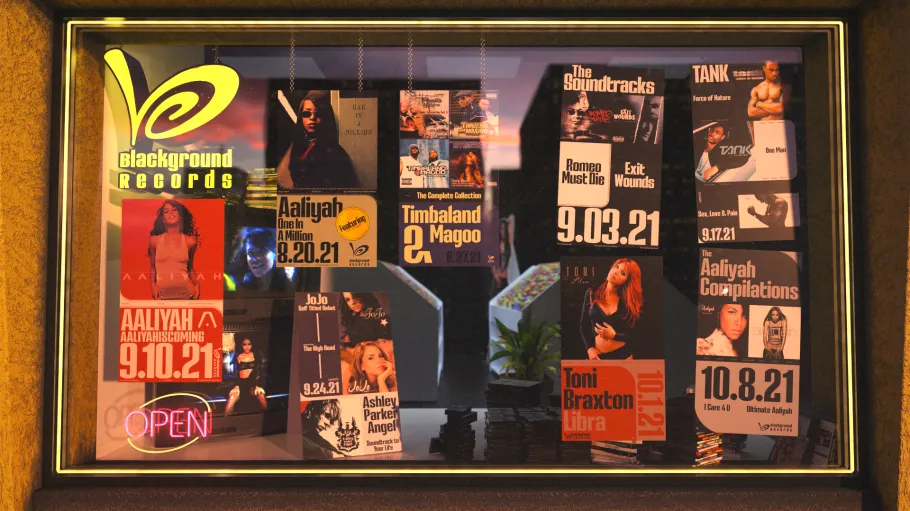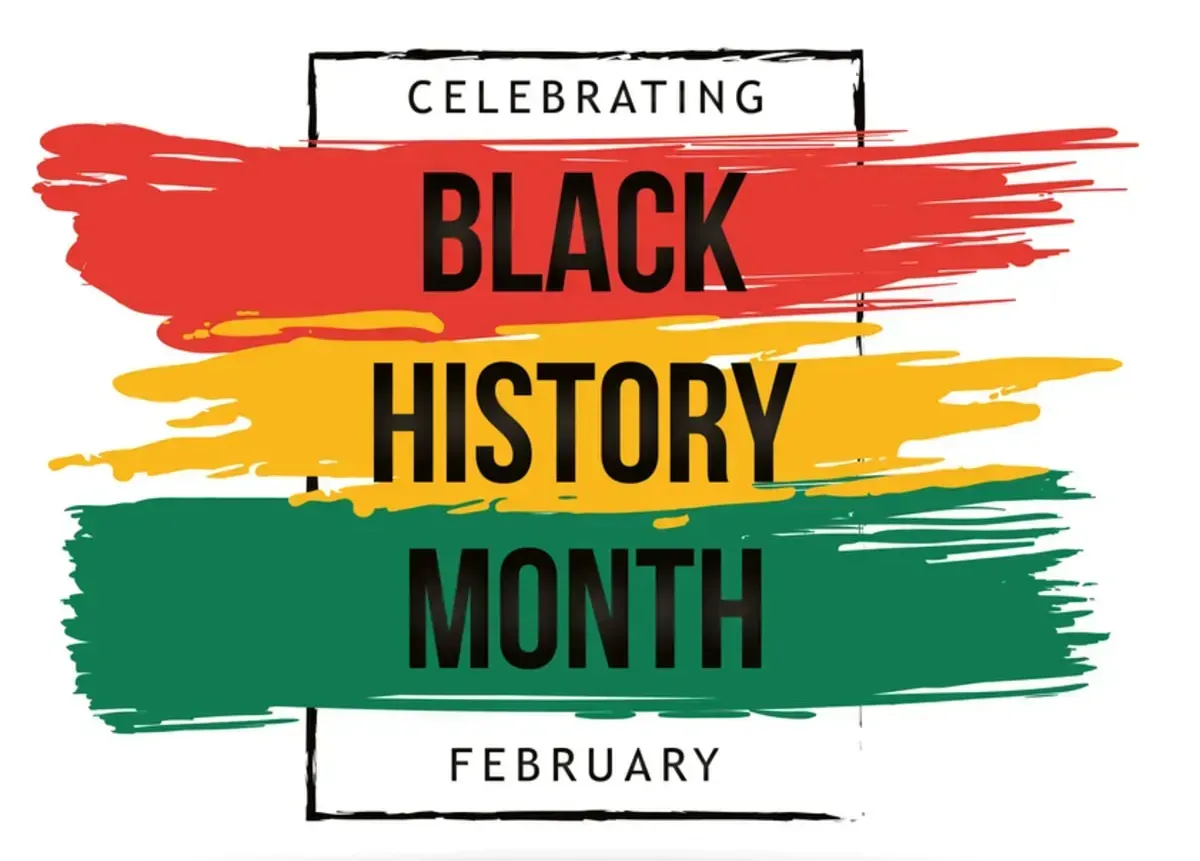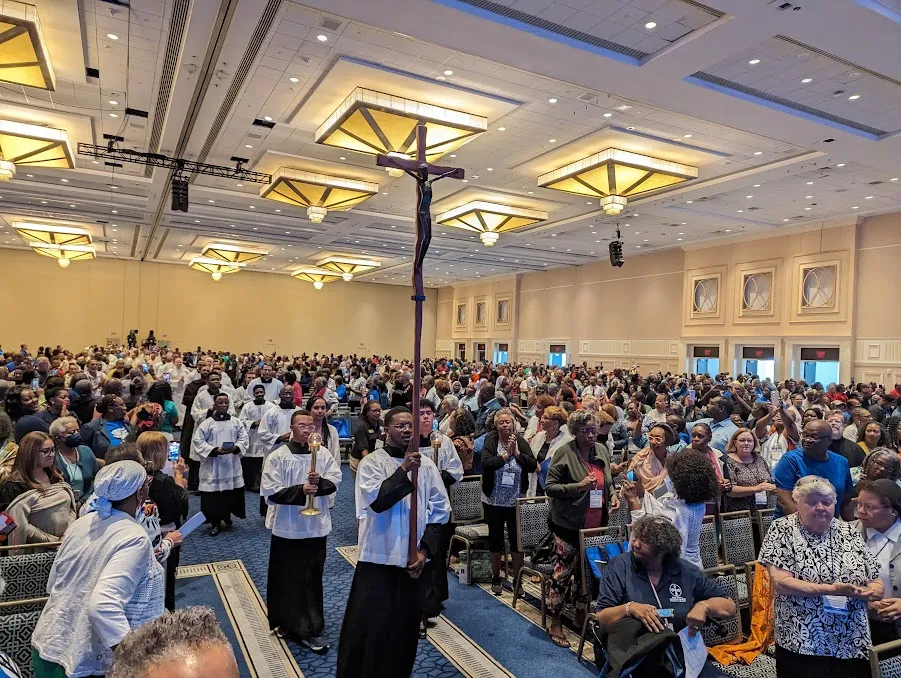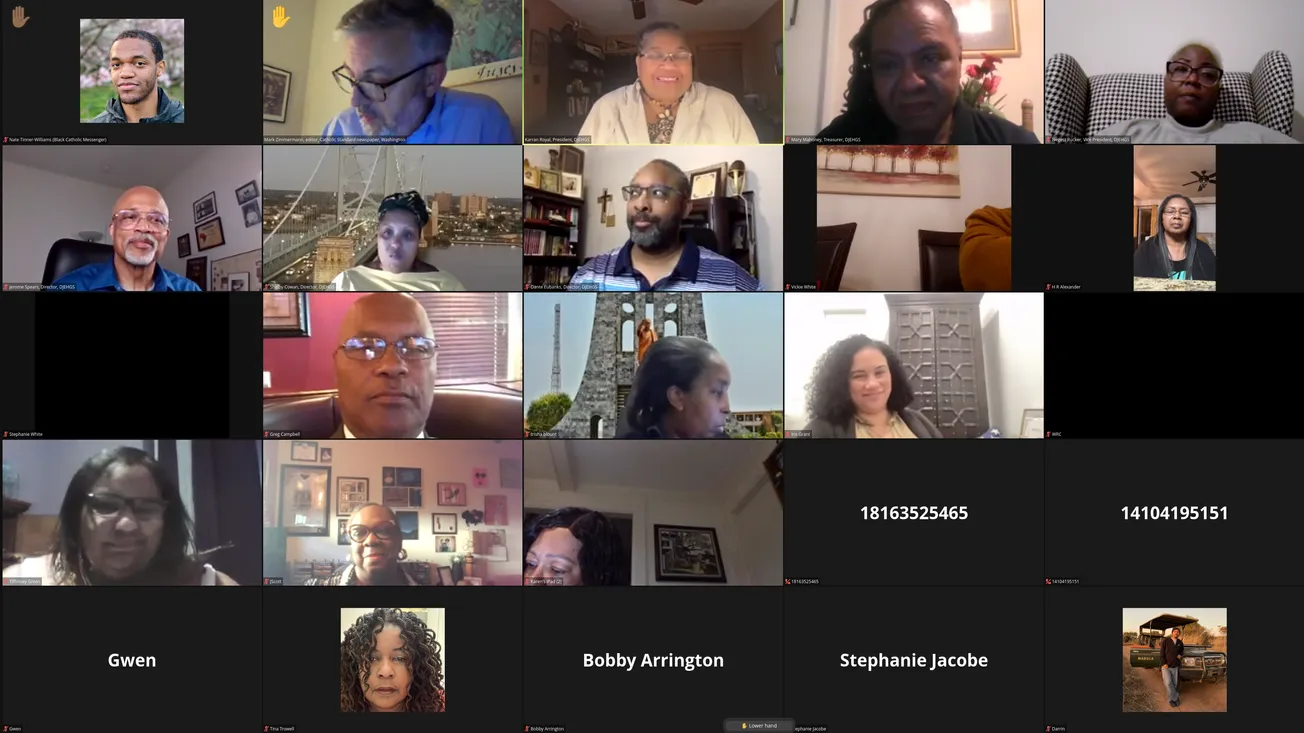After 20 long years, the music of Aaliyah is finally free.
The eponymous Black Catholic’s first album as an adult, 1996’s “One In A Million”, was released on streaming platforms Friday, following a year’s worth of heightened anticipation and a controversial new deal which allegedly excluded her mother Diane and brother Rashad (the executors of her estate).
Since the death of the “Princess of R&B” (born Aaliyah Haughton) in a 2001 plane crash at the age of 22, the 4-time Grammy nominee’s later catalog had been MIA on modern music platforms, which her uncle Barry Hankerson—who once managed her and owns the rights to most of her music—ascribes to the desires of (and a fallout with) Diane, his sister.
A feud is said to have begun in the early 1990s when Hankerson introduced Haughton as a pre-teen to another of his clients, Robert “R. Kelly” Kelly, who subsequently married the budding young singer when she was just 15 years old. The marriage was later annulled.
(The album resulting from their collaborations, 1994’s ominously titled “Age Ain't Nothing but a Number”, was released on Jive and has been streamable for years.)
The rift was only exacerbated by Haughton’s death, after which various starts and stops followed concerning her music. Projects and re-releases were stalled, killed, or reversed in a series of family and legal disputes—including one instance in 2012 when the estate openly opposed a posthumous collaboration with Canadian artist Aubrey “Drake” Graham.
“Whatever my sister told me, I tried to do what she wanted me to do,” Hankerson told Billboard in an interview published on August 5th.
“As a parent, I would understand if she did not want the music out.”
His claims are under dispute, however, as the estate—which owns the rights to Haughton’s intellectual property and runs her official social media accounts—released a statement online the day before the Billboard story broke, citing “unauthorized projects”, “shadowy tactics”, and “deception”.
The statement did not refer by name to Hankerson, who has faced similar accusations from artists in the past (including Toni Braxton and Joanna “JoJo” Levesque).
#IStandWithAaliyah pic.twitter.com/Q2zgAvRAgX
— Aaliyah (@AaliyahHaughton) August 5, 2021
Through their lawyer, however, the estate claimed on August 5th—the same day as Hankerson’s formal announcement—that Hankerson, who also controls Haughton’s music royalties, has for years failed to give a full accounting of the finances therein.
They also alleged that Hankerson himself is the reason Haughton’s music has been “embargoed” since her death, claiming they have “always been ready to share Aaliyah’s musical legacy”.
For his part, Hankerson says he made a payment to the estate last year, and that an August 2020 announcement on Twitter from the estate—signaling a shift in attitude about re-releases of Haughton’s music—gave him a perceived green light to begin negotiations with music executives.
Official message from the Estate of Aaliyah Haughton. Thank you for your continued love and support! 🙏
— Aaliyah (@AaliyahHaughton) August 25, 2020
.
.
.
.#aaliyah #aaliyahhaughton #aaliyahmusic #aaliyahforever pic.twitter.com/rRDIVaHVfo
“I really got my cue that my sister was ready to put the music out, because she said so on the internet,” he told Billboard in his interview, adding that he “would have never dreamed that’s the way [he] would hear it”.
The 2020 statement in fact claimed that the estate itself had begun negotiations, though it's unclear how they planned to proceed without owning any rights to her music. (Hankerson sold a partial stake in Haughton’s catalog to Reservoir Media in 2012, but that company has not appeared in reports concerning the past year’s saga.)
In the end, it’s clear that Hankerson was not involved in the estate’s meetings, and that the estate was not involved in the meetings he later initiated with Empire, which is behind the re-releases. Concerning the latter, the estate says they reached out to Hankerson without response, and Hankerson says he reached out to the estate with a similar outcome.
By August 1st, Hankerson was announcing that he had revived his Blackground Records label, which originally released the latter two of Haughton’s three major albums.
Within days, social media accounts for “Blackground Records 2.0” were live, adding that Haughton’s music would soon be available on Spotify, YouTube Music, and elsewhere (incrementally and in chronological order).
Aaliyah’s music will officially be available on all major digital streaming platforms + physical albums. #AaliyahIsComing (Thread)
— Blackground Records 2.0 (@Blackground) August 5, 2021
⁰08/20 - “One in a Million” Album pic.twitter.com/yCpw6XnBYq
Curiously, the announcement(s) coincided with the beginning of the landmark sex abuse trial against R. Kelly, the source of at least one branch in the Haughton ordeal.
Media reports emerged over the weekend that Kelly’s former tour manager procured a fake ID for the purpose of the singer’s illegal marriage to a then-underaged Haughton.
R. Kelly's former manager told jurors that he bribed an Illinois government employee to obtain a fake ID for Aaliyah so she could marry the singer when she told Kelly she might be pregnant at 15. https://t.co/3Am4H6Dr6h
— New York Times Music (@nytimesmusic) August 21, 2021
Neither the estate nor Hankerson has commented on the trial thus far.
Meanwhile, “One In A Million” has rocketed to the top of the iTunes albums charts—while the single of the same name topped iTunes charts on Friday, also reaching the top 10 on Spotify’s “Viral 50” as of Sunday morning.
A new book is also out on her life, “Baby Girl: Better Known as Aaliyah”, released on August 17th—a little more than a week before the anniversary of her death—by hip-hop historian Kathy Iandoli, who says the family declined to participate due to “some legal issues”.
Said issues do not appear to be affecting Hankerson’s new deal, however, as Haughton’s eponymous album—released shortly before her death and topping the Billboard 200 shortly thereafter—is due on streaming platforms September 10th, followed by the "Romeo Must Die" soundtrack on September 3rd and the compilations “I Care 4 U” and “Ultimate Aaliyah” on October 8th.
Nate Tinner-Williams is co-founder and editor of Black Catholic Messenger, a seminarian with the Josephites, and a ThM student with the Institute for Black Catholic Studies at Xavier University of Louisiana (XULA).
Want to support our work? You have options.
a.) give on Donorbox!
b.) create a fundraiser on Facebook












